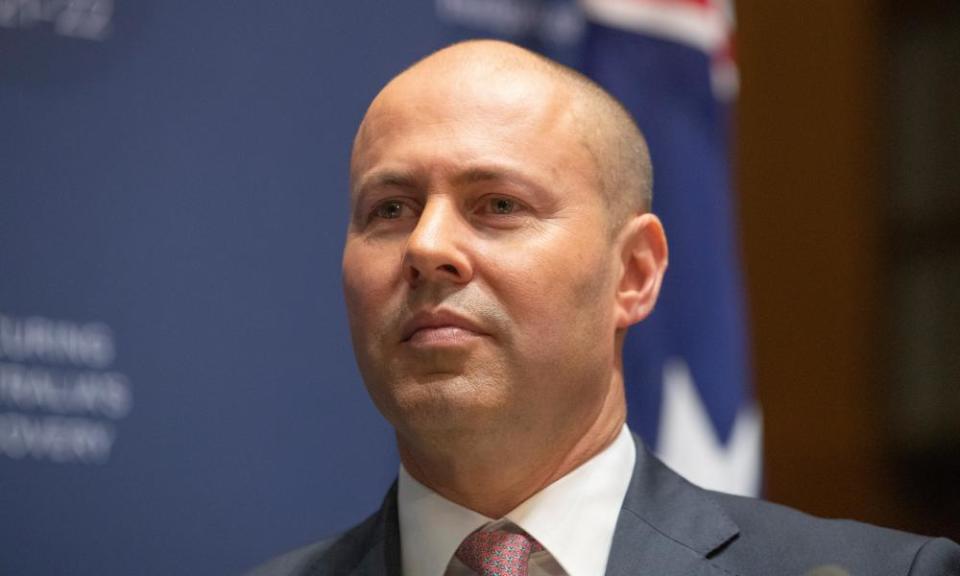Budget 2021: make no mistake, this is a keeping options open for an election this year budget

Whenever I go out and do public events, inevitably someone asks me when the next federal election will be. Will it be this year, or next? I have a standard response to this question – the election will be called when Scott Morrison has sufficient confidence he will win.
Election timings are a bit more complicated than that, but not much.
So, what does Tuesday night’s budget tell us about the government’s election planning? It tells us the government hopes that it can get the bulk of the Australian population vaccinated by the end of the year. It also hopes that the economy, which has surprised on the upside thus far, will keep picking up steam over the next 12 months.
This strong forecast pick-up in the economy tapers off in the budget out-years. Tick. Tock. Goes the election clock.
This budget tells me that the government is absolutely leaving open the option of going to the polls late in 2021. I’m not sure I’d go as far as this being an election budget, but this is, absolutely, a keeping your options open budget.
As well as being an options wide open budget, Tuesday night is also a make-good budget.
If we cast our minds back to the budget Josh Frydenberg delivered last October, the government got flayed in the court of public opinion after delivering an economic statement that read like a budget for blokes.
That was followed in short enough order by Scott Morrison very obviously failing to rise to the occasion of the #MeToo moment that the former Liberal staffer Brittany Higgins visited on the Australian parliament in the opening quarter of 2021.
Our latest polling, published on Tuesday morning, suggests that voters (in this instance, women) are less angry with Morrison than they were a month ago.
Morrison wants to use Tuesday night’s budget to lock in his political recovery, and to that end, the budget has been crafted as an official expression of emotional intelligence.
The EQ is expressed through significant social spending on the services families care about: aged care and mental health, childcare and preschool.
Call this an apologia for being a blockhead, tallied in the billions, and sprinkled over the forward estimates.
Of course, this spending is not all about politics. The investments in aged care and mental health meet demonstrable needs in the community.
I can’t read the aged care royal commission report without feeling significant distress about the systemic failings that incoherent and penny-pinching government policy has inflicted on older Australians, and the army of carers that heroically look after ageing parents to keep them out of residential aged care.
Allocating close to $18bn on aged care is certainly welcome, as are the proposed reforms to structures. But this is just a down payment on what is required given Australia’s ageing population.
I’m also concerned that the government hasn’t (yet) gone all the way with giving elderly people a right to quality care, with penalties attached. Giving elderly Australians an enforceable right was a fundamental recommendation of the royal commission designed to prevent governments and providers fudging their obligations.
But the budget dollars and the systemic changes are certainly a start.
It’s a similar story with mental health.
So many Australian families are struggling to find help for loved ones battling serious mental illness in a highly suboptimal mental health system that sometimes makes problems worse. What actually needs to happen, frankly, is the whole system needs to be blown up and started again, but this is an incredibly difficult undertaking both politically and practically.
But there’s an incredibly important initiative in this budget – a $158.6m commitment to provide universal access to care for people who have been discharged from hospital after a suicide attempt.
If this policy is designed well it will save lives, because at the moment people are not being looked after properly during their lowest ebb, which makes it likely they will repeat self-harming behaviour with tragic results. It’s such a simple change that can deliver tangible benefits to people in profound distress. I know there will be so many families profoundly relieved to see this.
Thinking back to last October, the striking thing about that budget was how on brand it was. The policy prescriptions last year for economic recovery were to cut income taxes, and give businesses incentives to spend and hire.
Self-evidently those basic Coalition instincts persist in this budget, but the government is also kicking into the wind when it comes to the role of government. High community expectations of what governments can and should do have been reset in a pandemic, and opportunity (or perhaps cover) has been created by an environment of zero interest rates. Pumping billions into social services is a long way from the “end of the age of entitlement” and the austerity budget of 2014.
The government is cutting taxes while raising community expectations about being a government for the times in terms of better service provision – with economic growth the magic pudding that allows the Coalition to service all the debt and be all things to all people.
This wasn’t the pre-pandemic reality and it won’t be the reality after we have weathered the storm of Covid-19.
The searching questions about how we afford all the things when the government wants to be the party of lower taxes aren’t foregrounded in this budget (elections tend to cut across transparency and truth-telling) – but the fact is, a bunch of really tough conversations loom.

 Yahoo Movies
Yahoo Movies 